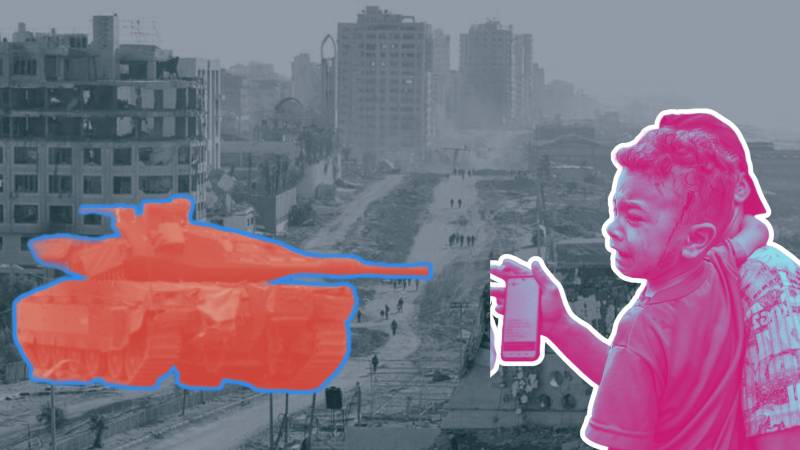
The lurking danger from Israel's planned offensive on Gaza's densely populated Rafah city in the South raises grave doubts about its intentions for the thousands of innocent displaced Palestinians.
When the International Court of Justice (ICJ) ordered on January 26, 2024, to prevent genocide and ensure humanitarian aid to civilians, it was a demonstration of a genuine understanding of the nature of crimes and intentions of Israel. However, the targeting of medical and hospital facilities since and the blocking of basic health services and critical aid for Palestinian refugees by the United Nations Relief and Works Agency (UNRWA) has sparked a humanitarian crisis while raising serious concerns about whether Israel is meeting its international obligations and complying with the directions of the international court, which are binding.
Israel, the state and its military force, continue to perpetrate horrific crimes against the largely unarmed, starved and displaced Palestinian population. Almost 3,000 casualties and 5,000 injuries have been reported since the ICJ order. Tragically, Palestine's population continues to suffer. They starve and die amidst a catastrophic disaster and the looming threat of famine.
Without a complete ceasefire, an important measure missed by the court, there can be no end to this fatal destruction.
South Africa alleged in a complaint filed on December 29, 2023, at ICJ in the Hague — the UN Tribunal for settling disputes between states — that Israel, in contravention of Article I of the Genocide Convention, is perpetrating acts of genocide under Article II and III against Palestinians with an intention to destroy them.
A sceptical section of the media criticised South Africa's case as "flimsy" and that it is "making a mockery of the court" by bringing the charges of genocide against Israel, which is responding in "self-defence" by targeting Hamas, "a terrorist group". The analysis in The Economist fell to the ground.
Israel failed to convince the court that it was not violating the Genocide Convention and was merely acting in self-defence to combat the perpetrators of the October 7 attack, Hamas
The case marked a legal victory for South Africa, first, when the court entertained its stance in opposition to the question of jurisdiction raised by Israel's lawyers. Secondly, the court found evidence of "plausible" violation of the rights of the Palestinian population, comprising over 2 million people, who are at risk of "real and imminent" danger due to the destruction wrought by Israel. The court observed 'plausible' evidence of death and disaster in light of reports of various credible UN agencies such as the OCHA, WHO, and UNRWA indicating that 25,700 Palestinians had been killed, over 63,000 injured, over 360,000 housing units destroyed, and approximately 1.7 million persons internally displaced. Almost 93% of the population in Gaza was facing crisis levels of hunger.
Third, South Africa successfully convinced the court that there was an intention to destroy Palestinians, who constitute a "distinct national, ethnical, racial or religious group and hence a protected group within the meaning of Article II of the Genocide Convention" in light of genocidal and dehumanising rhetoric from the senior Israeli government officials on record.
Considering the circumstances and evidence presented, the court observed that the "catastrophic humanitarian situation in the Gaza strip is at serious risk of deterioration further", and as a means to address the urgency of the situation, ordered six provisional measures with a vote of 15-2, directing the state of Israel and its military to take all measures to prevent the killing of Palestinian in Gaza, causing them bodily or mental harm, inflicting on them destruction, imposing measures intended to prevent births, prevent and punish the direct and public incitement to commit genocide, ensure immediate and effective measures to enable the humanitarian assistance, ensure the preservation of evidence related to allegations of acts, and submit a compliance report to the court on all measures taken within one month.
Even though this is a provisional ruling, it is significant as it may be widely seen as a finding at the world stage that Israel's acts amount to genocide until the final order, and emphasising the need for immediate measures to be taken by the perpetrator to address the adverse conditions of life of Palestinian people.
On the other hand, Israel failed to convince the court that it was not violating the Genocide Convention and was merely acting in self-defence to combat the perpetrators of the October 7 attack, Hamas. It even failed to convince the court that there was no intent to destroy Palestine; rather, it was assisting humanitarian aid when there was evidence to the contrary.
It is outrageous to believe that Israel makes no distinction between civilians and combatants and is oblivious to the use of proportionate force. Dropping a 970-kilogramme bomb in a densely populated place is not striking a military target or responding in self-defence. It is evidence of a genocide.
South Africa was the only country to feel an obligation to prevent genocide from being committed under Article I of the Genocide Convention. However, it is an obligation of all member states under the convention to protect and prevent the commission of genocide by stopping arms trade or military aid to Israel and prohibiting politics of war. Meanwhile, Spain, Ireland, Turkey, Iran and the EU called for the order's implementation. There is increased moral and political pressure on the US, the champion of international global order and human rights, to play its role in stopping the war. If member states do not help stop this wanton destruction, they will be considered complicit in the crime of genocide under the convention.

